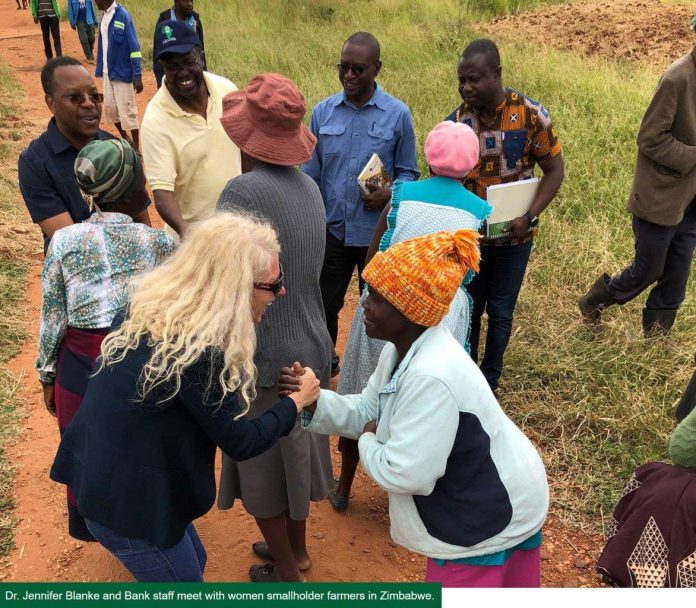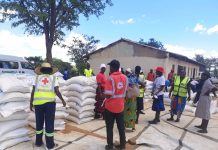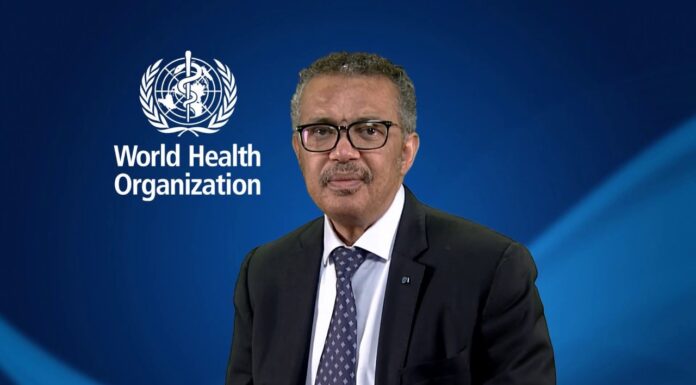Dr. Jennifer Blanke, Vice President for Agriculture, Human and Social Development takes stock and answers three questions about African women and agriculture and gives us results from the ground in Zambia, Zimbabwe and Sudan
- Can you tell the many observing International Women’s Day about the integral role women play in African agriculture?
It is well known that women form the backbone of Africa’s economies, and this is as true of agriculture as other areas. In many parts of Africa, well over half of the farmers are women and they are also are very active in value addition such as food processing, as well as in the agricultural service sector. اونو عكس And they do this often back breaking work while also carrying out the unpaid work of running households and child-rearing.
At the same time, women face an uphill battle in their access to resources. البير ميونخ In many places they do not have the right to ownership of farmland, which holds back their ability to access finance for inputs like certified seeds, fertilizer and the equipment and machinery to maximize crop production.
International Women’s Day is a time to take stock of what is needed to level the proverbial agricultural playing field. As well as helping women to access financing, the Bank is also actively recruiting women “agripreneurs” to bring their agribusiness proposals to our Enable Youth Program, including activities like the African Youth Agripreneurs Forum and AgriPitch competition. These provide a platform for young women and men with great ideas and ongoing activities in agriculture and agribusiness to scale up the scope and impact of their activities – AgriPitch competition winners take home their shares of a total of more than $70,000 of competition “seed funding” to grow their businesses.
2. You’ve just been on mission looking at how the Bank’s Technologies for African Agricultural Transformation (TAAT) initiative has positively impacted lives – including hearing the stories from women smallholder farmers. What can we learn about their experiences?
TAAT is an initiative that aims to bring the latest technologies to African farmers at scale so that they can increase yields and improve their livelihoods. For example drought resistant maize, heat resistant wheat and treatments against pests like the fall armyworm, which has been devastating crops across the continent. Our fact-finding mission to Zambia, Zimbabwe and Sudan included town-hall style meetings where women were eager to share their experiences and challenges, and also to get information on how best to improve their crops and increase family revenue.
The discussions were eye opening as we literally walked the walk with these women farmers participating in TAAT. Dwarfed by almost two-meter high maize plants in Mushandike, Zimbabwe, smallholder farmer Gertrude Marisa was beaming with pride as she showed us her healthy maize of the season, grown from an improved variety of drought-resistant maize, which survived a recent drought and also left her stalks virtually untouched by fall armyworm. We spoke with several women with similar stories, all of whom will reinvest the greater part of their hard-earned revenue into their families and the education of their children. I have to say that it is moments like these, when we see how we are truly improving the lives of Africans, that make all of the hard work in development finance worth it.
Following the successful implementation of the 2018/19 planned TAAT wheat seed activities in Sudan, private and public seed enterprises have grown over 850 tonnes of basic seed of five popular wheat varieties, namely Imam, Goumria, Zakia, Elnielain and Bohaine. They have grown this wheat varieties on more than 8,500 hectares in five wheat-growing regions of the country.
As a result of this activity, more than 26,000 tons of certified seeds produced were distributed to more than 260,000 wheat farmers in the following season.
Thanks to the new varieties such as Imam, Zakia and Bohain, Sudan’s wheat-growing area in 2018/19 saw a sharp rise to around 294,000 hectares. This is up from 201,000 hectares in 2017/18.
- The theme of this year’s International Women’s Day is “I am Generation Equality: Realizing Women’s Rights.” To what degree is this theme relevant to the Bank’s work?
The Bank is making efforts towards gender equality in its operations, initiatives and procurement across the continent. This priority is inter-generational, with the goal of providing all women with equal opportunity and access in areas such as education, high-tech skilling, finance and gainful employment.
Africa has the highest percentage of women entrepreneurs in the world. However, women in Africa face a $42 billion financing gap compared to men. The Bank’s Affirmative Action for Women in Africa program, or AFAWA, aims to bridge that gap by rolling out programs that create a level playing field for women in obtaining finance for developing their businesses. The recent announcement of more than a quarter-billion-U.S. dollars from France and other G7 nations in support of AFAWA will significantly accelerate this goal.
In terms of skilling, the Bank’s Coding for Employment initiative, carried out in partnership with Microsoft, Facebook and the Rockefeller Foundation – which provides month-long classes in basic communications technology and other computer literacy skills – graduated its first all-women cohort of students in Nigeria last year. In 2020, we plan to roll out nine coding centers of excellence across Africa and a major goal will be to broaden opportunities for African women across generations.












